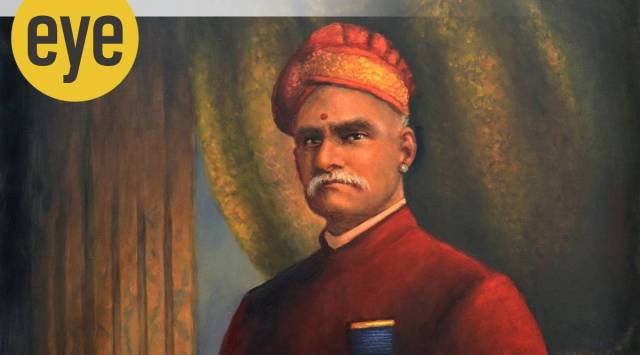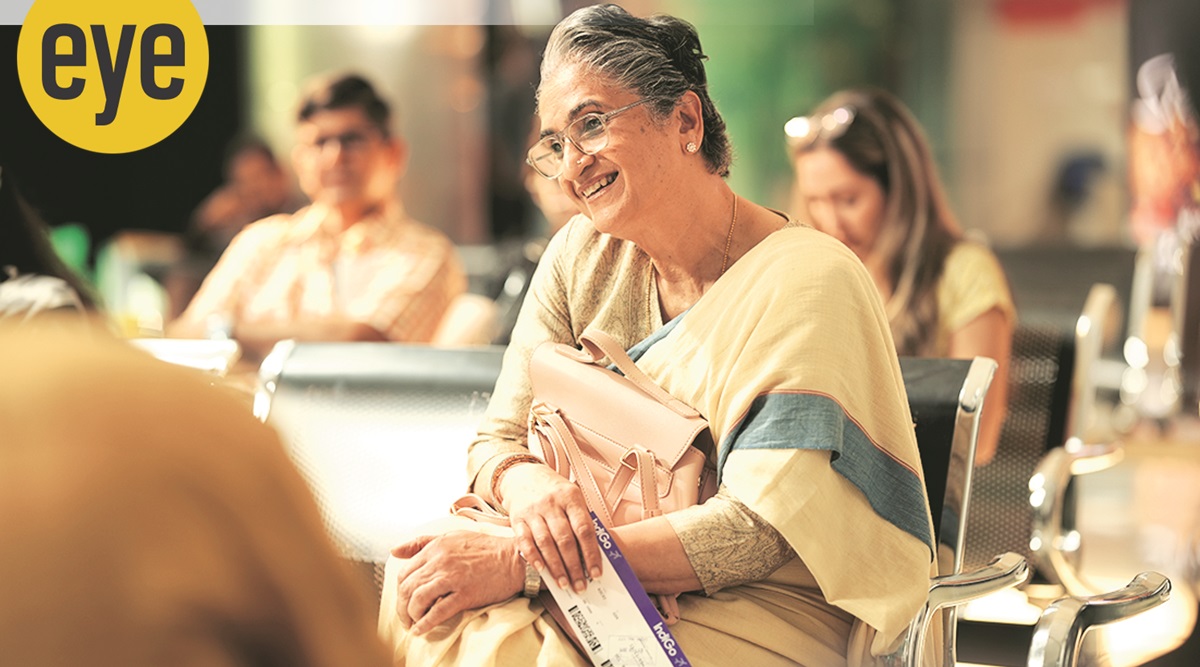Sunday Long Reads: Raja Ravi Varma life and legacy, Shahab Durazi enduring fashion, Massimo Bottura and more
On his 175th birth anniversary, remembering the life and legacy of Raja Ravi Varma At Louvre Abu Dhabi, in an exhibition that investigates the origins of Indian cinema, alongside costumes and props from iconic Bollywood movies, are 19th century chromolithographs of Lord Krishna, goddesses Lakshmi and Mohini, painted by Raja Ravi Varma. Gitanjali Maini, managing […]
 Raja Ravi Varma Portrait by Rukmini Varma. (Pic source: Rukmini Varma)
Raja Ravi Varma Portrait by Rukmini Varma. (Pic source: Rukmini Varma) On his 175th birth anniversary, remembering the life and legacy of Raja Ravi Varma
At Louvre Abu Dhabi, in an exhibition that investigates the origins of Indian cinema, alongside costumes and props from iconic Bollywood movies, are 19th century chromolithographs of Lord Krishna, goddesses Lakshmi and Mohini, painted by Raja Ravi Varma. Gitanjali Maini, managing trustee and CEO of the Raja Ravi Varma Heritage Foundation (RRVHF), points out how Varma not just humanised the deities that previously predominantly rested in temples, but also influenced Indian visual culture and cinematic aesthetics of the time. “(Filmmaker Dadasaheb) Phalke had worked at the Raja Ravi Varma press, and several of his earlier films — such as Raja Harishchandra (1913), Kaliya Mardan (1919), Nala-Damayanti (1927) — were visibly influenced by how Ravi Varma drew his characters; the costumes and characterisation were identical; he made them three-dimensional. In some ways, he brought the still images to life, playing out mythological stories that had previously been seen in Ravi Varma paintings,” says Maini.
How Viji Venkatesh won hearts of the Malayalam film audience
 Meet Mumbai-based Viji Venkatesh who made her debut with the Malayalam film Pachuvum Athbutha Vilakkum at the age of 71.
Meet Mumbai-based Viji Venkatesh who made her debut with the Malayalam film Pachuvum Athbutha Vilakkum at the age of 71.
What’s the right age to make your debut in Indian cinema? In your early 20s or 30s, perhaps? Meet Mumbai-based Viji Venkatesh who made her debut with the Malayalam film Pachuvum Athbutha Vilakkum at the age of 71. Released last week, the film written, directed and edited by Akhil Sathyan, son of veteran filmmaker Sathyan Anthikad, stars Fahadh Faasil in the titular role of Pachu and Venkatesh as the wise and feisty Laila called Ummachi (grandmother) by everyone. The title which loosely translates to ‘Pachu and the Magic Lamp’ sees Venkatesh playing the latter, a metaphor used to represent how she changes the course of the protagonist’s life.
What the river tells us
 History connects us to a hopeful future. (Credit: Suvir Saran)
History connects us to a hopeful future. (Credit: Suvir Saran)
Situated on the bank of the holy river Ganges, Haridwar is a city at the foothills of the Shivalik range of the Himalayas in Uttarakhand. Millions of pilgrims, devotees, mendicants and tourists congregate in this city every 12 years for the Kumbh Mela, to perform ritualist bathing to wash away their sins, hoping to achieve moksha. It is fabled to be one of four cities where drops of the elixir of immortality, amrita (nectar), were accidentally dropped by the celestial bird, Garuda, as he ferried the nectar during the churning of the ocean of milk. Water from Haridwar is carried for hundreds of miles to be used in shrines to Lord Shiva across India.
Director Sudhir Mishra on his latest film Afwaah, rumour-mongering and why he will stand up for Vivek Agnihotri
 Afwaah is directed by Sudhir Mishra.
Afwaah is directed by Sudhir Mishra.
Sudhir Mishra stands at the rear end of the INOX Odeon theatre in New Delhi, a tall, straight figure, watching the politics of the day with all its mayhem and machinations, unspool on screen — much in the manner he has kept a watch over the changing nation in his four-decade career in filmmaking. This time he has put rumour and its power to unleash destruction at the centre of his new film Afwaah, featuring Nawazuddin Siddiqui and Bhumi Pednekar, that released on Friday.
What makes Shahab Durazi’s clothes an enduring fashion statement?
 Shahab Durazi (Source: Shahab Durazi)
Shahab Durazi (Source: Shahab Durazi)
Amid a sea of glitzy outfits, on day two of the recently concluded Nita Mukesh Ambani Cultural Centre opening, a navy-blue gown worn by actor Kareena Kapoor stood out. Designed by couturier Shahab Durazi, it summed up the veteran designer’s “less is more” approach to fashion. The gown featured a strict corset top with a floor-length mermaid skirt. The closed neckline was adorned with silk organza strips made into loops and bows and embellished with jet Swarovski beads and Japanese pearl sequences in intervals. One sleeve had dramatic hoops that were effortlessly linked to a bejewelled sash on the side of the waist. “I am inspired by the beautifully tailored clothes from the 1940s and 1950s when women’s fashion underwent a drastic change in silhouette and style. With this particular gown, we wanted to create something for Kareena that complements her innate beauty and personality,” says Durazi, who has been synonymous with understated sartorial elegance for over three decades.
‘It takes courage to keep a door open to the unexpected’: Massimo Bottura, Michelin-star Italian chef
Celebrated, the world over, for some of the most iconic dishes of contemporary gastronomy, Italian chef Massimo Bottura changed the notions of traditional Italian cooking with his restaurant Osteria Francescana in Italy’s Modena. Scoring a spot at this Michelin star establishment is a game of chance — tables run out soon after bookings open and the waiting period extends to over six months. Through his three-decade-long career, though, Bottura hasn’t just reimagined the intricacies of Italian cuisine.
Dumping Darwin from syllabuses
 All in the Family: Birds are direct descendants of reptiles — and dinosaurs (Credit: Ranjit Lal)
All in the Family: Birds are direct descendants of reptiles — and dinosaurs (Credit: Ranjit Lal)
At the end of World War II, there was a nasty little joke going around (spread by the Allied Forces) about how the battle-tanks of one axis power had five reverse speeds and one slow forward speed. Which, is exactly the way our education system seems to be going these days: first the learned authorities dumped the Mughal Empire (soon they’ll say that the Eat India Company did not exist nor did Mahatma Gandhi!) and now they’re dumping one of the greatest scientific theories ever: Darwin’s theory of evolution.
Photos




- 01
- 02
- 03
- 04
- 05



























